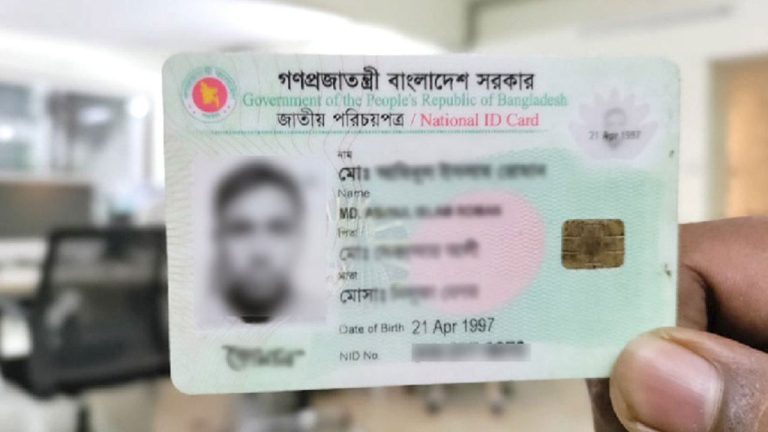NID Service Temporarily Suspended

NID Service Temporarily Suspended. The NID service in Bangladesh has been temporarily suspended nationwide due to a technical complication in the OTP verification system. This interruption has sparked concern among users trying to access their National Identity Card (NID) data and services through the official online portal.
NID and OTP Issue
The one-time password (OTP) system is a key security feature used to authenticate user logins to the NID server of the Bangladesh Election Commission. Users are required to enter their User ID and password, followed by an OTP sent to their registered mobile number, in order to access their digital NID services.
However, due to a nationwide technical glitch, the OTP is not being delivered, effectively preventing all types of server access. This delay has led to a full halt in NID-related online services, affecting thousands of citizens, government officials, and private institutions relying on the system.
Official Confirmation from the Election Commission
On Tuesday, around 12:30 PM, ASM Humayun Kabir, the Director General of the National Identity Card Registration Division under the Bangladesh Election Commission (EC), officially acknowledged the issue.
He stated:
“To log in to the server, an OTP is required after entering the user ID and password. However, the OTP is currently not being received. Consequently, access to the server is not possible. This also leads to the closure of the NID service.
His confirmation indicates that the disruption is server-wide and not isolated to individual users or regions.
Impact of the Suspension
The temporary suspension of the NID service has led to multiple problems, particularly for:
- Citizens applying for new NID cards
- Individuals updating their personal information
- Banks and telecom operators that depend on real-time NID verification
- Government offices conducting voter registration and public service identification
The Bangladesh National Identity Card system is deeply integrated with digital governance, banking, education, and mobile services. This means that the unavailability of NID verification could delay numerous services across sectors.
Importance of NID in Bangladesh
In Bangladesh, the NID card is a crucial document used for:
- Voter registration
- Opening bank accounts
- Obtaining mobile SIM cards
- Passport applications
- Government subsidies and digital ID integration
As a result, any interruption in the NID authentication system has far-reaching consequences for citizens and administrative bodies alike.
Technical Investigation Underway
The Election Commission’s IT department has reportedly begun an investigation into the cause of the OTP delivery failure. While the exact cause remains unclear, sources suspect it could be due to either a server-side failure, SMS gateway blockage, or cybersecurity vulnerability.
The EC has not yet provided a timeline for resolution but has assured the public that efforts are being made to restore normal service as soon as possible.
What Citizens Can Do?
While the NID server is temporarily unavailable, citizens are advised to:
- Refrain from making online changes or verifications until the system is restored
- Stay updated by following the official Bangladesh Election Commission website and verified news portals
- Avoid sharing personal NID data with unofficial sources claiming to offer a workaround
It is also advisable to maintain backup physical copies of your NID card and any official documents for emergency use.
Call for System Strengthening
This incident has again raised the issue of robust digital infrastructure in Bangladesh’s e-governance systems. As more services shift online, cybersecurity and server resilience must be prioritized. The public is also advocating for the activation of backup channels or offline support mechanisms during such failures.
Conclusion
The temporary suspension of NID services due to an OTP failure is a reminder of the delicate balance between digital transformation and infrastructure stability. As Bangladesh continues to digitize its public services, stronger systems, fail-safe options, and quick-response mechanisms will be vital to prevent such nationwide disruptions.






